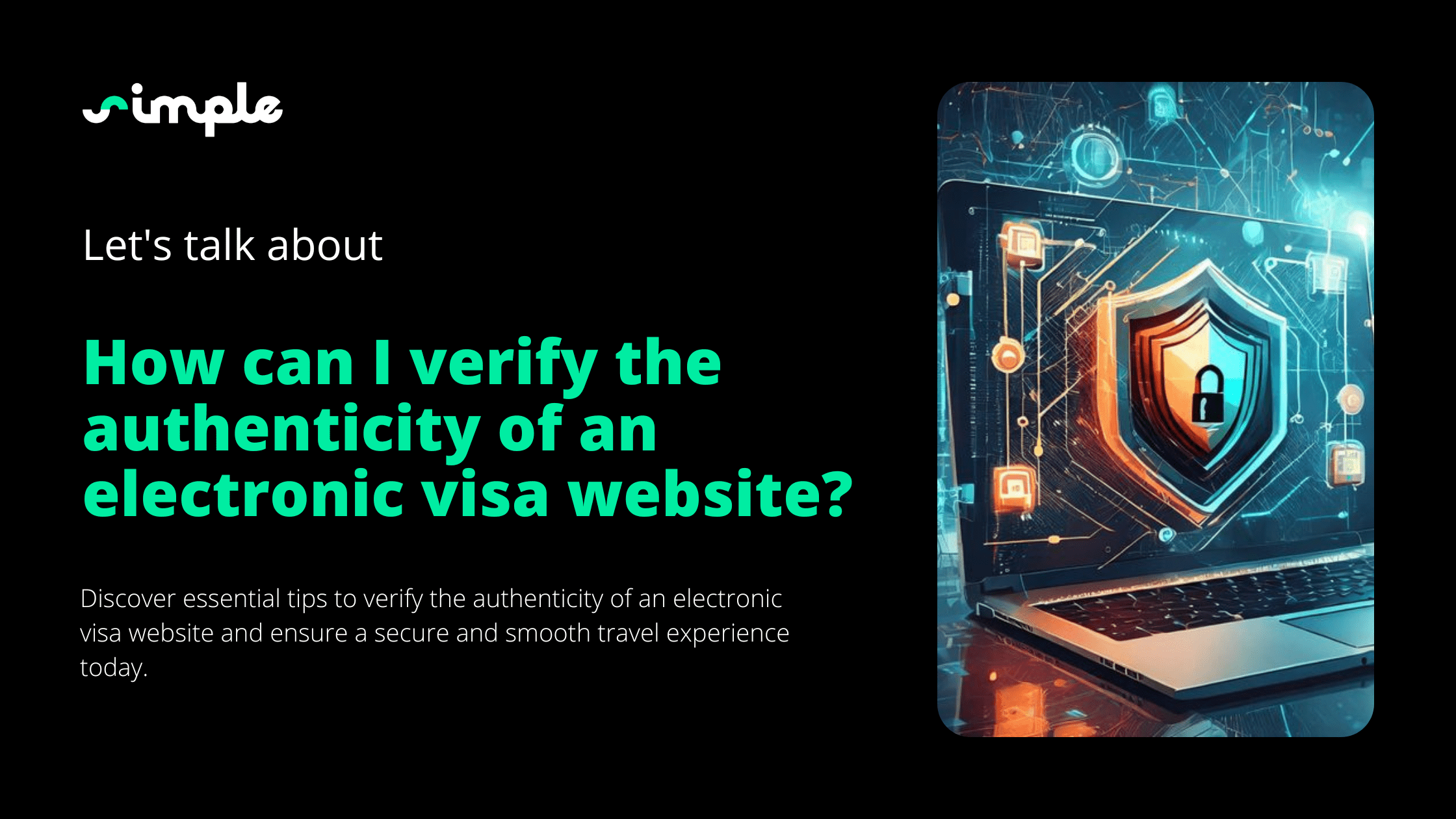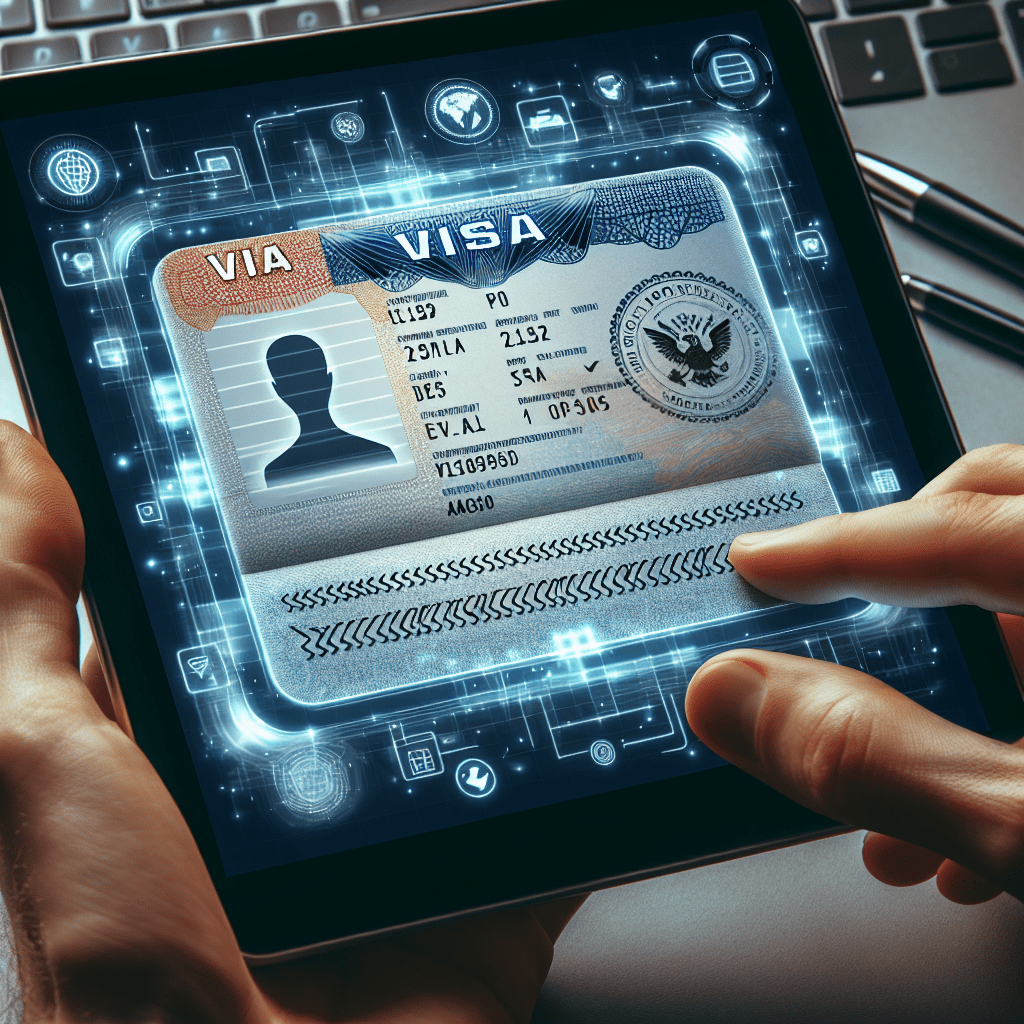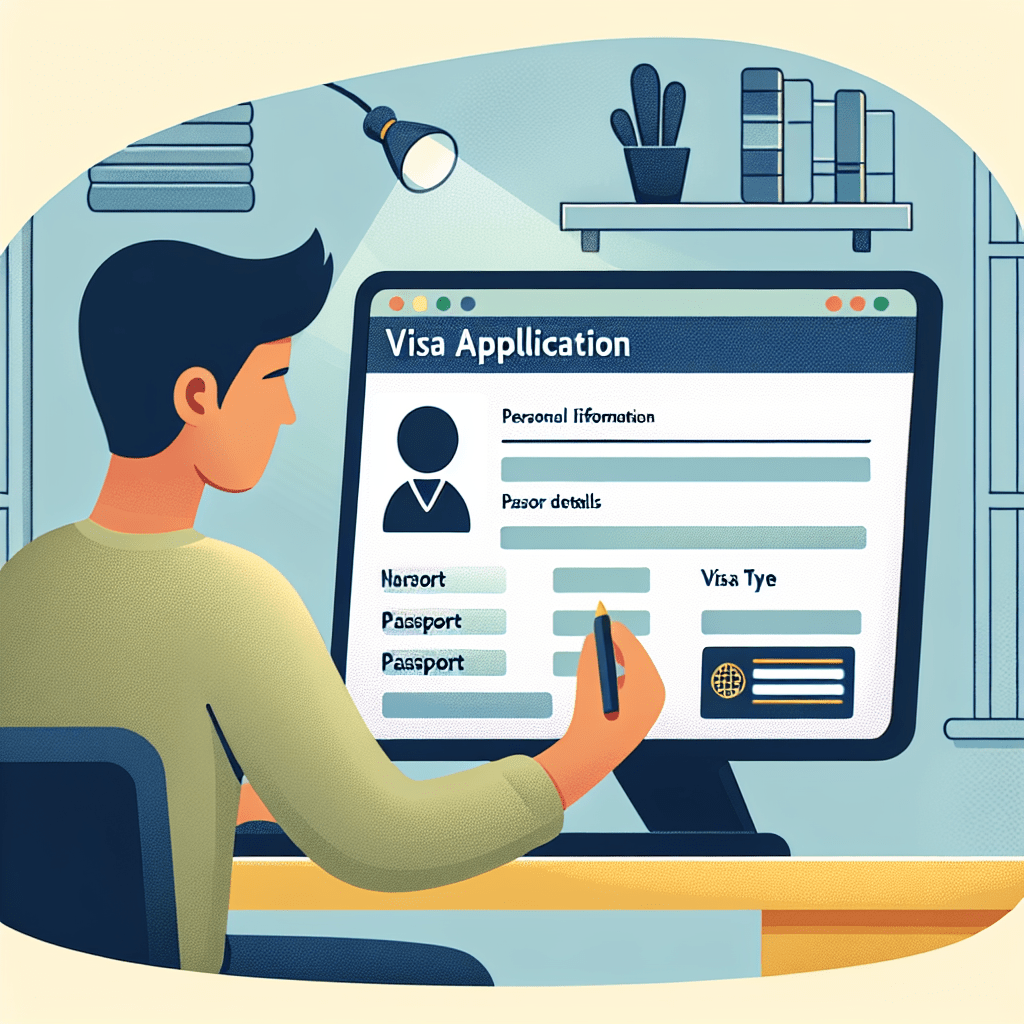How can I verify the authenticity of an electronic visa website?

In today’s fast-paced world, electronic visas have become an essential component of international travel. They offer a convenient and efficient way to obtain travel authorization without the need for physical paperwork or visits to embassies. However, as the popularity of electronic visas continues to rise, so do concerns about the authenticity of the websites offering these services. With numerous fraudulent sites attempting to exploit unsuspecting travelers, it is crucial to ensure that the platform you are using is legitimate and secure.
Understanding how to verify the authenticity of an electronic visa website is vital for safeguarding your personal information and ensuring a smooth travel experience. By being aware of the common signs of fraudulent sites and knowing what to look for in a legitimate service, you can confidently navigate the digital landscape of visa applications. This guide provides practical tips and insights to help you identify trustworthy electronic visa platforms, ensuring that your travel plans are not only convenient but also secure. For more information on electronic visas, you can visit our electronic visa page.

Key indicators of a legitimate electronic visa website
Secure website connections
One of the most fundamental aspects of verifying the authenticity of an electronic visa website is ensuring that the site has a secure connection. The presence of the HTTPS protocol in the website’s URL is a critical indicator of security. HTTPS, which stands for Hypertext Transfer Protocol Secure, encrypts the data exchanged between your browser and the website, protecting sensitive information such as personal details and payment data from potential cyber threats. When visiting an electronic visa website, always check that the URL begins with “https://” rather than “http://”. This small detail can make a significant difference in safeguarding your information.
In addition to the HTTPS protocol, look for identifiable secure symbols in your browser, such as a padlock icon next to the URL. This icon signifies that the connection is secure and that the website has a valid SSL (Secure Sockets Layer) certificate. SSL certificates are issued by trusted authorities and serve as a digital passport for websites, confirming their identity and ensuring that data is encrypted. If you encounter a website without these security features, it is advisable to proceed with caution or avoid it altogether.
Official government endorsements
Another key indicator of a legitimate electronic visa website is its association with official government endorsements. Authentic platforms often have links to governmental or official tourism websites, providing a layer of credibility and assurance. These links can usually be found in the footer or contact sections of the website. By cross-referencing the electronic visa website with official government or embassy websites, you can verify its legitimacy and ensure that it is recognized by the relevant authorities.
Embassies and consulates often provide guidance on their official websites regarding the process of obtaining an electronic visa. They may list approved service providers or offer direct links to the appropriate online visa application portals. If the electronic visa website you are considering is mentioned or linked on an official government site, it is a strong indication of its authenticity. Conversely, if you cannot find any official references or endorsements, it may be wise to seek alternative options.
Clear contact information and customer service
A legitimate electronic visa website will provide clear and accessible contact information, allowing users to reach out with inquiries or concerns. Reliable contact options, such as a phone number, email address, or live chat feature, are essential for establishing trust and transparency. When evaluating an electronic visa service, take note of the availability and responsiveness of their customer support team. A professional and attentive support team can provide valuable assistance and reassurance throughout the e-visa processing journey.
In addition to contact information, consider the professionalism and responsiveness of the customer service team. Legitimate electronic visa platforms prioritize customer satisfaction and are typically prompt in addressing inquiries. If you encounter difficulties in reaching the support team or receive unprofessional responses, it may be a red flag indicating a potentially fraudulent website. By ensuring that the electronic visa service offers reliable and professional customer support, you can enhance your confidence in the platform’s authenticity.

Analyzing content quality and transparency
Clarity and accuracy of visa information
When assessing the authenticity of an electronic visa website, the clarity and accuracy of the information provided are paramount. A legitimate platform will offer comprehensive and up-to-date details about the online visa application process, including eligibility criteria, required documents, and processing times. The frequency with which this information is updated is a good indicator of the site’s reliability. Regular updates ensure that travelers receive the most current guidance, reflecting any changes in visa policies or procedures.
In addition to update frequency, the relevancy and detail of the visa application procedures are crucial. A trustworthy electronic visa service will provide step-by-step instructions, making it easy for applicants to understand and complete the process. This includes information on how to obtain a digital travel authorization or an electronic travel permit, as well as guidance on e-visa processing. If the website lacks detailed instructions or provides vague information, it may be a sign of a less credible service.
Presence of clear terms and conditions
Transparency is a hallmark of a legitimate electronic visa website, and this is often reflected in the presence of clear terms and conditions. These terms should be easily visible and accessible, allowing users to understand their rights and obligations when using the service. A reputable platform will outline the terms of use, privacy policies, and any disclaimers, ensuring that users are fully informed before proceeding with their application.
Another critical aspect of transparency is the clarity of pricing and any additional fees. A legitimate electronic visa service will provide a detailed breakdown of costs, including the visa fee and any service charges. This information should be presented upfront, without hidden fees or unexpected charges. By ensuring that the website is transparent about its pricing structure, you can avoid potential scams and make informed decisions about your online travel visa application.
User reviews and external validation
User reviews and external validation are valuable tools for assessing the credibility of an electronic visa website. Authentic customer testimonials, particularly those found on third-party review sites, can provide insights into the experiences of other travelers. Look for reviews that mention the ease of using the e-visa platform, the efficiency of the internet visa service, and the overall satisfaction with the digital visa approval process.
When evaluating reviews, it is essential to look for patterns of credibility. Consistent positive feedback about the virtual visa system or the electronic entry visa process can indicate a reliable service. Conversely, a pattern of negative reviews or complaints about hidden fees and poor customer service may suggest a less trustworthy platform. By considering user reviews and external validation, you can gain a more comprehensive understanding of the electronic visa service’s reputation and reliability.

Utilizing digital tools for verification
Use of domain registration information
One effective method for verifying the authenticity of an electronic visa website is to examine its domain registration information. By checking the domain age and registration details, you can gain insights into the website’s legitimacy. Established websites with a long history are generally more reliable than newly created domains, which may be indicative of fraudulent activity. Domain age can be verified using various online tools that provide information about when the domain was registered and its expiration date.
In addition to domain age, it is important to identify the registrar’s reputation. Reputable registrars are less likely to host fraudulent websites, as they often have stringent verification processes in place. By researching the registrar associated with the electronic visa service, you can assess whether the platform is likely to be trustworthy. If the registrar has a history of hosting suspicious sites, it may be a red flag that warrants further investigation.
Online safety tools and plugins
There are numerous online safety tools and plugins available that can help verify the trustworthiness of an electronic visa website. Tools like WHOIS databases and website lookup services provide detailed information about a site’s registration, ownership, and hosting details. These resources can be invaluable in determining whether a website is legitimate or potentially fraudulent.
Browser plugins designed to assess website trustworthiness can also be useful. These plugins often provide real-time alerts about the safety of a site, based on factors such as its security certificates, user reviews, and historical data. By utilizing these digital tools, you can enhance your ability to identify legitimate electronic visa services and avoid potential scams. Whether you are applying for a digital travel authorization or an electronic travel document, these tools can provide an added layer of security.
Reporting and identifying scams
In the event that you encounter a suspicious electronic visa website, it is important to report it to the appropriate authorities. Many countries have dedicated agencies or departments that handle reports of online scams and fraudulent activities. By reporting suspicious sites, you can help protect other travelers from falling victim to scams and contribute to the broader effort to combat online fraud.
Additionally, using official sites to confirm the authenticity of an electronic visa service is a prudent step. Government websites and official tourism portals often provide lists of approved e-visa platforms and guidelines for obtaining a digital entry permit. By cross-referencing the electronic visa website with these official sources, you can verify its legitimacy and ensure that you are using a trusted service. This approach not only safeguards your personal information but also ensures a smooth and secure online visa application process.

Conclusion
Empowerment through vigilance and informed research is crucial in navigating the digital landscape of electronic visa applications. As the convenience of online visa services continues to grow, so does the need for travelers to be vigilant and informed. By understanding the key indicators of a legitimate electronic visa website, such as secure connections, official endorsements, and clear contact information, travelers can protect themselves from potential scams. Additionally, analyzing the quality and transparency of the content provided by these platforms further empowers users to make informed decisions. The use of digital tools for verification, such as domain registration checks and online safety plugins, adds another layer of security, ensuring that travelers can confidently engage with electronic visa services.
Encouragement to utilize reliable resources for safe travel planning cannot be overstated. In an era where digital transactions are commonplace, leveraging trustworthy resources is essential for a seamless travel experience. Official government websites, reputable travel agencies, and well-reviewed electronic visa platforms are invaluable allies in this process. By relying on these reliable sources, travelers can ensure that their online travel visa applications are processed smoothly and securely. Moreover, reporting suspicious websites and sharing experiences with others contribute to a safer online environment for all travelers. As you plan your next journey, remember that informed research and the use of credible resources are your best tools for ensuring a safe and enjoyable travel experience.